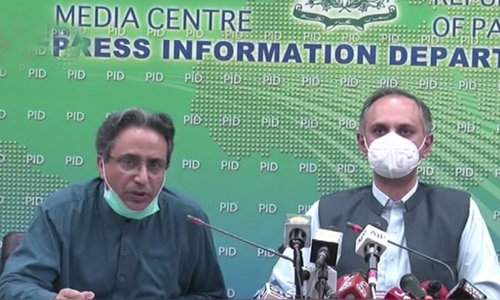ISLAMABAD: The government is considering complete deregulation of profit margins of petroleum dealers and oil marketing companies (OMCs) with upper caps and initial increase of 15-20 per cent.
This is based on the advice of state-owned Pakistan Institute of Development Economics (Pide) but a final decision is expected to be taken by the Cabinet Committee on Energy (CCOE) or the Economic Coordination Committee (ECC) of the Cabinet next week.
The OMCs and petroleum dealers have been seeking increase in their sales and distribution margins by around 50pc to the premise of increase in the costs of doing business and inflation.
The dealers had threatened to go on countrywide strike with effect from November 5 in protest against the government’s dilly-dallying on increase in their margins. On November 3, they withdrew their protest strike call after a government team led by Minister for Energy Hammad Azhar agreed to increase their margins on sale of petroleum products by 6pc within a few days. The meeting had also constituted a committee led by Petroleum Secretary Dr Arshad Mahmood and comprising stakeholders to ensure implementation of the agreement for increase in the margins through approvals from the ECC and the federal cabinet by November 15. The government team also included the chairman of the Oil and Gas Regulatory Authority (Ogra) and the Director General Oil.
The dealers announced on November 3 that they were calling off their protest but would go on a strike from November 20 if agreed increase in margins was not notified.
Informed sources said that about 15-20pc increase in dealers’ margins and OMC’s commission had been finalised in a summary to the cabinet committees. The summary had proposed increasing dealers commission by about 85 paisa and 60 paisa per litre on petrol and diesel respectively and about 60 paisa per litre increase for both petrol and diesel for OMCs. At present, the OMCs are allowed Rs2.97 per litre commission on both products and dealers get Rs3.90 and Rs3.30 per litre on petrol and diesel, respectively.
The summary was held back at the last moment on the receipt of an independent study submitted by Pide. The study proposed deregulation of margins for dealers and OMCs with an upper cap at about Rs4 and Rs4.50 per litre, respectively or as percentage of sale price of petroleum products, starting with the same range of impact.
Pide advised that best option would be complete deregulation for which the current market situation was the most opportune as various cost elements were fixed and enough players were in the market for fair competition. At the same time, Pide also called for facilitation of a fresh category of petroleum dealers alongside two existing categories for competition but did not suggest if regulatory environment was conducive. At present, retain pumps are of two categories including “company owned and company operated” and “company owned, dealer operated”. The new category should be of “dealer owned, dealer operated” on the pattern of the United States and the Philippines.
It said country had 66 licences OMCs and 34 of them were actively operating in the market – an ideal situation for competition. On top, there were about 10,000 petroleum pumps – one third of whom belonged to state-run Pakistan State Oil which can act as price leader with overall market share of close to 50pc.
Since, the ex-refinery or import parity price was well known along with federal excise, customs duty, inland freight equalisation margin, petroleum levy and sales tax, the margins for OMCs and dealers could be ascertained by Ogra in case these go beyond upper cap.
It also offered another option of partial deregulation with upper cap of margins either by merging margins both the dealers and OMCs or without merger. The upper cap could be in the shape of fixed margin or up to 13pc on total capital employed on arranging product supply which worked out to be 6.5pc to 7pc of sale price of petroleum products. At this rate, per litre margins ranged between Rs7 and 8 per litre each to dealers and OMCs on both products. This also involved the cost for maintaining mandatory stocks.
Published in Dawn, November 20th, 2021
















































Dear visitor, the comments section is undergoing an overhaul and will return soon.